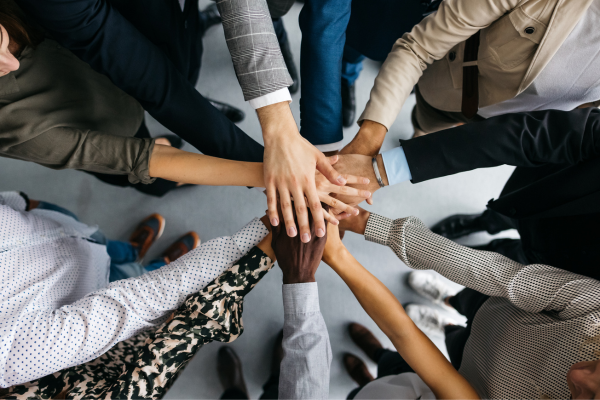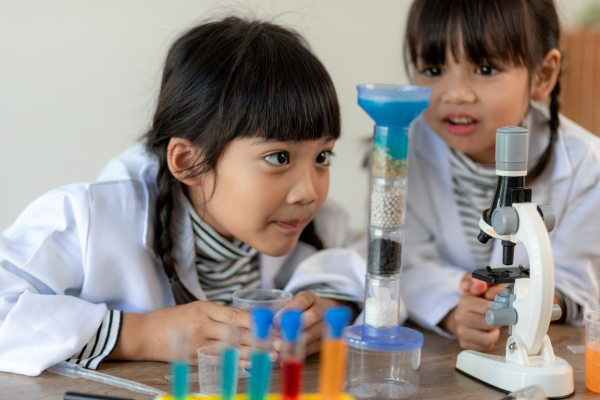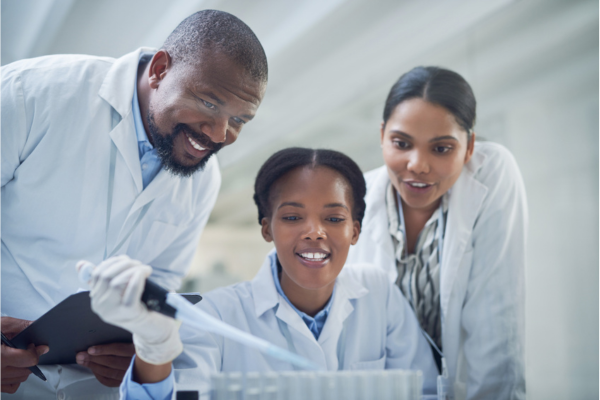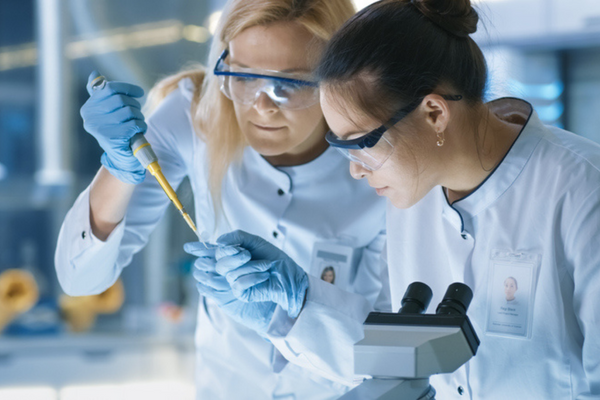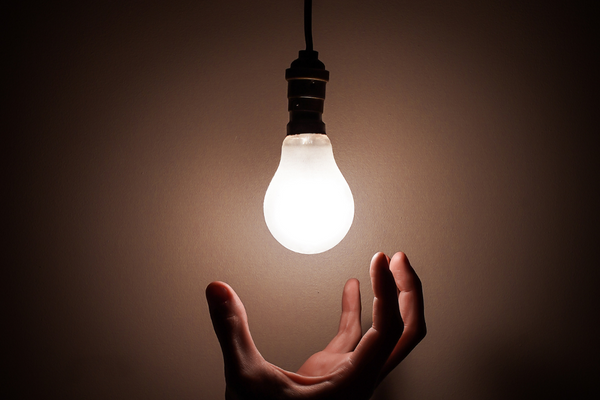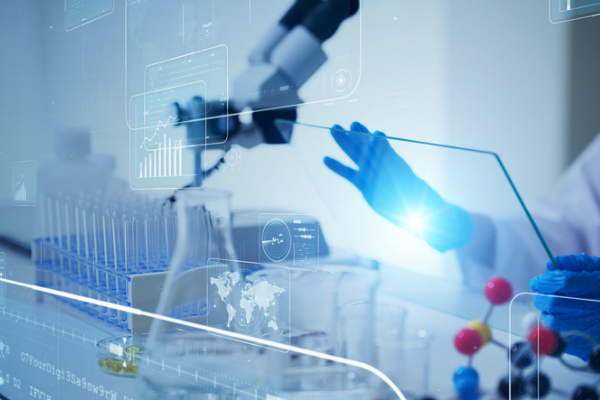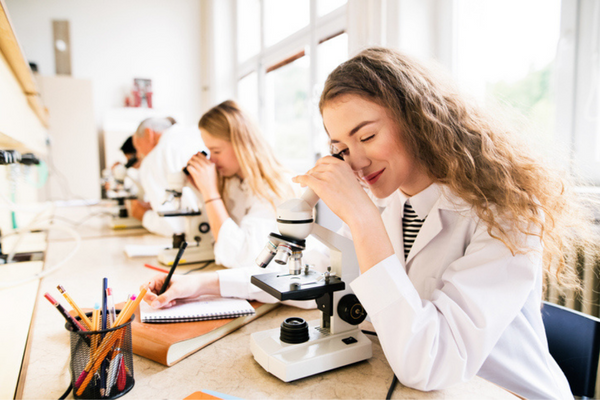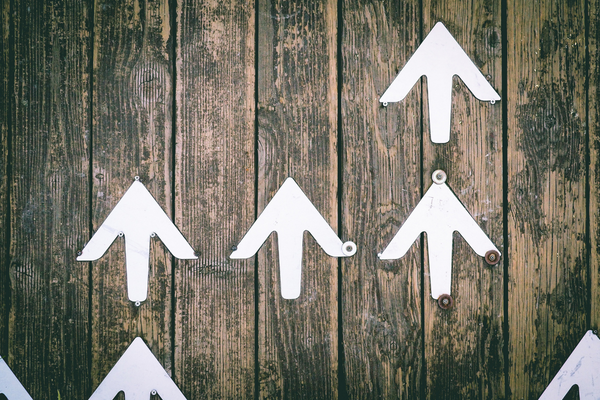
In what ways did your university years prepare you for your jobs at NIST and Dow? What can universities do to better prepare chemists for jobs in industry?
I spent nine years working on my degrees in chemical engineering. It was a lot of fun and a lot of hard work. My university years helped me by teaching me the basics of the scientific method (Undergrad Education), how to work in teams (Unit Operations, Senior Design), and how to approach problem solving when the answers aren’t known (Graduate Education). I learned to not give up and to keep trying different ways to solve problems. Problem solving skills have been very beneficial in my jobs and in life.
Working with cross functional teams would be one way that universities can do a better job to prepare chemists for the workforce. Not everyone in a company is a trained scientist. Many teams at Dow can have commercial teammates (sales, finance, public affairs), chemists, different engineers, etc. Clearly communicating science to cross-functional teams is a skill that takes time to develop. It is a good skill for students to be able to explain why their research is important, what they did, and how their results make an impact, to their professors and people who work outside of their field of study.
What do you like about working at Dow?
What I like about working at Dow is the wide range of technologies, chemistries and types of roles in the company. In my role in Core R&D, I was able to work with many different businesses and learned about oil and gas, hydrocarbons, agricultural sciences, distillation (experimental and simulations) and methyl cellulose scrubbers.
At the beginning of most of my projects, I had little background knowledge on the chemicals that I’d be working with. But by the end of a project, I would develop a deeper understanding in a new technology and have a network of teammates from different parts of the company.
In my current role as a technical service & development (TS&D) engineer for packaging and specialty plastics, I work closely with customers that use our elastomeric polymers in various market segments. Problem solving with customers is a lot of fun!
My favorite market segment is footwear, as I have my own growing shoe collection (over 100 pairs). I help customers work with Dow’s polymers to obtain different mechanical properties for various types of footwear, such as sandals, casual shoes and running shoes. It’s rewarding to see some of the problems I help solve get implemented in the next shoe to hit the market.
I also support customers in the transportation, infrastructure and adhesives segments. I get to learn about different polymers, different market applications and meet a lot of cool people along the way. My favorite part of my job is that I get to work with and visit customers in Latin America (before the pandemic). I grew up speaking Spanish and Italian at home and my mom always said, knowing more languages would one day help me get a job. And she was right. (Hey Mom! You were right!) It has been an amazing opportunity to improve my Spanish and learn technical jargon in another language. This role has also allowed me to work with colleagues all over the world.
What is the one personality trait that has been most instrumental in your career success? What trait do you wish you had in greater supply?
Resiliency. Science does not always work out as planned. Projects may change directions due to internal and external circumstances. Being able to course correct my project plans, my experiments, and even my career plans as new obstacles cross my path has been instrumental to my career success. It’s not always easy, but being able to adjust plans as needed helps me keep moving forward. The global pandemic has tested my resiliency skills in having to find new ways to work and help my son with school, all while being home all the time.
Drive to completion. I wish I had some more drive to finish tasks. I am great at getting started. It’s the excitement of something new to work on that gets me going. After some time working on a task (project, email, report, etc.), my perfectionism kicks in and with a little procrastination, I end up losing steam to cross the finish line. I wish I could take some of that starting excitement and use that energy to finish reports, emails or tasks with as much enthusiasm as I started with.
What have you learned about leading teams that other team leaders might find helpful?
One of the important things that I have learned about working with teams is the importance of getting to know your teammates and understanding their different styles of communication. Developing a personal connection with someone and building a trusting relationship helps projects move forward. Adapting your communication styles to each team helps make things run smoothly and avoid misunderstandings.
Some teammates prefer to have discussions in person (meetings), others via email, some like a text or chat message. Taking the time to learn about your teammate’s communication preferences can help you as a leader get everyone on the same page faster.
As a leader, being clear about your preferences is just as helpful. It is easiest to reach me with a text or chat message if you need a quick response. An email could get lost in the ocean of my inbox, and I might not get to the request in a timely fashion. While it might seem like a lot of work, clear communication and communication plans can help a team stay on track. If sending one coworker an email and then communicating the same message to another coworker with a quick phone call gets the job done, it’s worth the effort. What I learned from leading teams is that clear communication is just as important as how and where you deliver the message.
You spent several summers working with NASA. What did you take away from your experiences?
Working at NASA was an amazing experience. I spent a few summers at the NASA Glenn Research Center (Cleveland, OH) where I worked on a particulate and gaseous emissions project testing different jet fuels. I did data analysis on the emissions results from turbo engines and learned a lot about Excel, macros and statistical analysis.
As an intern, I was able to visit other laboratories to learn about Mars Rover material testing, the wind tunnel (for different aircraft and shuttle designs) and the “Vomit Comet”, also known as the zero-gravity plane for zero gravity experiments. Everyone that worked there was always happy to share what they were researching. They were excited about science!
I was exposed to a wide variety of research areas such as materials, environmental research, zero gravity studies, aerospace, and fluid dynamics, all with real world and out-of-this world impacts. What I learned is my problem-solving skills can be applied to many different research areas, and there are a lot of neat problems that need solving.
For young people interested in science, what’s the role of a summer internship with a scientific or technical organization?
I think the role of a summer internship is to increase one’s exposure to the types of jobs, problems, and roles you might find in different industries. For me, it helped me learn what kind of jobs I did not want and what types of projects were exciting. Besides the type of research that one might do in a job, an internship also helps you learn about different company cultures. For me, it is more important to like the people I work with more than the area I worked in. The team makes things fun! What I learned is that internships help you explore different career paths and organizations, one summer at a time.
If you were running NASA, what ‘next big thing’ would you be looking to accomplish with the agency?
Self-lacing running shoes to add to my running shoe collection. Just kidding, I believe that has already been done. If I were running NASA, I would look at all the novel technologies used in aerospace and leverage it to applications in everyday life. How can what we know about space shuttles help airplanes travel more efficiently? Can any of the automation used for satellites be used to help automobiles be autonomous? Those are some of the questions that come to my mind. How can we transfer the innovations from space travel to the Moon or rovers on Mars to make our everyday life better?
How has your time on the ACS Women Chemists Committee benefited you?
I have enjoyed my years volunteering on the ACS Women Chemists Committee. What I found most beneficial is the networking and friendships I’ve developed from working on the committee for the past 5 years. Our committee meetings happen twice a year in person, where I’d get to travel to the ACS conference location and spend a day and a half with a group of wonderful accomplished women (and men) working in the chemical enterprise.
We get a lot of planning and decisions made during the committee meeting that will be executed during the next six months. I also participated in a long-term strategy session, where a team of WCC members and other ACS committee members developed a long-range plan for the WCC. I learned a lot from this deep dive into long term strategy planning that will help my work with the WCC and other non-profits I work with. It gave me the opportunity to learn ACS organizations develop a long-term strategy, and how organizations are evolving in this digital age.
What have you learned about yourself since the start of the pandemic?
Since the start of the pandemic, I’ve really enjoyed the relaxed dress code (no business casual at home) and working in the comfort of my house wearing yoga pants. I have expanded my collection of black leggings, and not having to commute makes the mornings feel more relaxed. It seems to me that work has not slowed down. However, without the commute and business travel, I have had more time to get things done, like reports from customer meetings that I usually put off until after a trip is completed.
My workday has had to change, with my son being home doing virtual kindergarten. I learned that I don’t need to work 8 hours. in a row; I can break up my workday and still get things done. That flexibility has been a blessing. I also learned it takes a lot of energy to work full time and patience to teach your child kindergarten.
As a member of the Board of the SPCA of Brazoria County, Texas, what are some of the key issues you are dealing with right now?
Taking care of the animals’ well-being is always a top priority for the SPCA, as well as fundraising. The pandemic means our in-person fundraising events (Furballs, Doggy Dash 5ks, Bark in the Park, Adoption Events) have had to become virtual.
The Board has dealt with how society has pivoted from in-person to online. One of the good things that has come out of this pandemic is a lot of families spending time at home were also wanting to add a new family pet. It has been great to see the number of animals in the shelter decrease as the animals found new fur-ever homes or foster homes.
We have focused fundraising events to digital platforms like Facebook, online t-shirt sales and making our own Home-opoly board (A locally- sponsored Monopoly game to raise funds to build a new shelter building, #BuildLoveaHome). 2020 has forced the Board to get creative with our fundraising to support animals’ health care costs and operating expenses.
If you had an extra hour today, how would you spend it?
If I had an extra hour today, I would pack a picnic meal and spend time outside playing with my son, husband and dog.
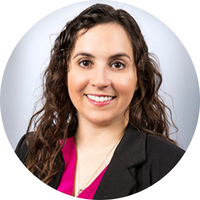
Alexia started working at Dow Chemical in 2010 as a process engineer in Core R&D Engineering and Process Sciences in Freeport, TX. In this role, Alexia has contributed to several experimental projects on oil sands oil recovery, gas membrane separations, spinning band distillations, wiped-film evaporator distillations, gas stripping, pressure swing adsorption design, and organic-LED sublimations. In 2018 Alexia moved to a new role in the Packaging & Specialty Plastics – Infrastructure, Consumer & Transportation (ICT) group where she works as a Technical Service & Development Engineer supporting north region Latin American customers.
Alexia is also very active in the local section of the Brazosport American Chemical Society (ACS) section, Texas Gulf Coast Section of the American Institute of Chemical Engineers (AIChE) and a board member of the SPCA of Brazoria County. She is a member of national ACS Women Chemists Committee and is a certified Six Sigma Green Belt Project Leader.
Alexia received her BS in Chemical Engineering from Ohio University and an MS and PhD in Chemical Engineering from the University of Colorado at Boulder. Her PhD work involved gas separations using room temperature ionic liquids. Alexia is a former 2009 Dow BEST Symposium participant and was chair of the 10th Annual BEST Symposium in 2016.
Alexia tried out for American Idol in 2005. English is her third language after Spanish and Italian. Her hobbies include: running, home remodeling, Co-chairing the Lake Jackson Doggy Dash 5k Charity race, traveling and spending time with her husband and 5 year old son.
This article has been edited for length and clarity. The opinions expressed in this article are the author's own and do not necessarily reflect the view of their employer or the American Chemical Society.
Copyright 2020 American Chemical Society (All Rights Reserved)

